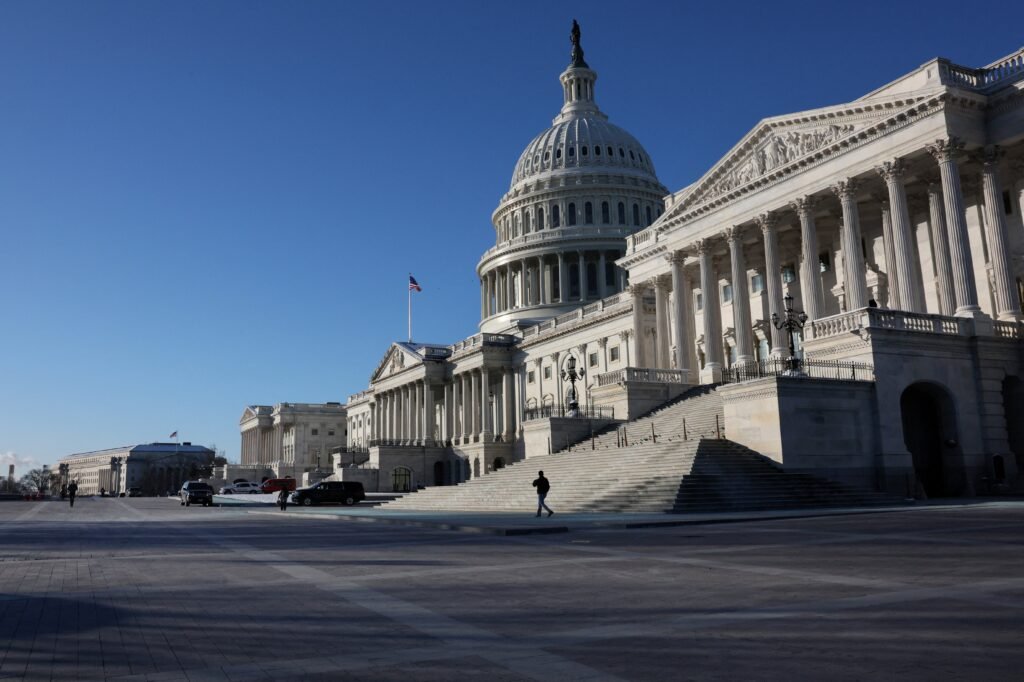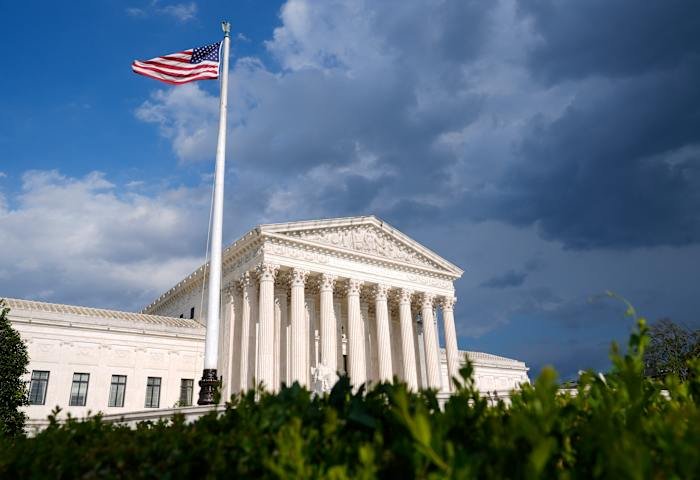WASHINGTON (OSV News) — The U.S. House on July 3 approved the One Big Beautiful Bill Act, which would enact key provisions of the legislative agenda of President Donald Trump on taxes and immigration, meaning the legislation will reach the president’s desk for his signature.
The same week in Washington, the U.S. Agency for International Development closed its doors after six decades, and a religious freedom watchdog issued a report about its concerns about religious persecution in Russia.
Catholic leaders have alternately praised and criticized various provisions in the legislation. Archbishop Timothy P. Broglio, president of the U.S. Conference of Catholic Bishops and head of the U.S. Archdiocese for the Military Services, said in a July 3 statement after the vote that he and the bishops had “repeatedly and consistently” urged lawmakers to make sure the bill would help families in need and “to change course” on aspects “that fail the poor and vulnerable.”
Only two Republicans — Reps. Thomas Massie of Kentucky and Brian Fitzpatrick of Pennsylvania — broke with their party to vote against the measure. Massie cited the bill’s projected increase to the national debt, while Fitzpatrick, who is Catholic, cited the way Medicaid cuts would impact his district.
The bill’s passage came after House Democrats sought to defeat Trump’s signature piece of legislation, including a record-breaking floor speech by House Minority Leader Hakeem Jeffries, D-N.Y.
Trump is expected to sign the bill July 4. Read more about the legislation here.
USAID was absorbed into the State Department on July 1, and former Presidents Barack Obama and George W. Bush were among those who addressed employees through a virtual message on their last day, June 30.
Cuts to funding for the government’s now-shuttered humanitarian aid agency in countries all over the globe include funding for efforts by Catholic and other faith-based humanitarian groups.
The State Department has indicated it will retain just a fraction of USAID functions under a program it has dubbed America First, a nod to Trump’s description of his foreign policy.
Obama told USAID staff, “Gutting USAID is a travesty, and it’s a tragedy. Because it’s some of the most important work happening anywhere in the world.”
“Sooner or later, leaders on both sides of the aisle will realize how much you are needed,” he added.
Bush told them, “You’ve showed the great strength of America through your work — and that is your good heart.”
The future of PEPFAR, the U.S. President’s Emergency Plan for AIDS Relief, the U.S. government’s global effort to combat HIV/AIDS, remains in question amid the closure of USAID. The program, authorized by Congress and then-President Bush in 2003, is the largest global health program devoted to a single disease. It is credited with saving 25 million lives and with scaling back the epidemic’s spread.
Bush argued in his remarks that the program is in U.S. interests.
“Is it in our national interests that 25 million people who would have died now live? I think it is, and so do you,” Bush said.
In a Substack post July 1, Secretary of State Marco Rubio wrote, “Foreign assistance programs that align with administration policies — and which advance American interests — will be administered by the State Department, where they will be delivered with more accountability, strategy, and efficiency.”
“We will not apologize for recognizing America’s longstanding commitment to life-saving humanitarian aid and promotion of economic development abroad must be in furtherance of an America First foreign policy,” Rubio said.
Bono, the U2 frontman and longtime advocate for HIV/AIDS research and treatment, also addressed staffers, telling them, “You were the best of us; there for the rest of us.”
“It’s not left-wing rhetoric to feed the hungry, heal the sick,” Bono added. “If this isn’t murder, I don’t know what is.”
The Supreme Court on July 3 cleared the way for the Trump administration to deport a group of eight migrants currently held in an American military base on Djibouti to South Sudan although they are not nationals of that country.
A federal judge previously blocked the Trump administration from deporting the men — who are from Latin American and Asian countries and have been convicted of serious crimes in the U.S. — to a so-called “third country” where they have no connections or legal status. The judge cited concern that the men would be subject to torture in South Sudan.
The Supreme Court previously blocked the lower court’s temporary injunction on the deportations, but the lower court judge subsequently argued his order was still in effect.
Justices Sonia Sotomayor and Ketanji Brown Jackson dissented from the high court’s order.
“What the government wants to do, concretely, is send the eight noncitizens it illegally removed from the United States from Djibouti to South Sudan, where they will be turned over to the local authorities without regard for the likelihood that they will face torture or death,” Sotomayor wrote.
Previously, Justice Elena Kagan objected to the deportations, but sided with the court’s majority in its July 3 clarification of their previous order, arguing, “I do not see how a district court can compel compliance with an order that this court has stayed.”
Catholic immigration advocates previously expressed concern about such deportations.
The U.S. Commission on International Religious Freedom on June 30 released a report detailing its concerns about persecuted religious groups in Russia and Russian-occupied territories of Ukraine.
USCIRF, an independent, bipartisan U.S. federal government commission that monitors religious freedom around the globe, said in its report the Russian government “uses several vague, problematic laws to target religious individuals and groups it perceives as a threat.”
“The Russian government perpetrates particularly severe violations of religious freedom against a range of religious groups and freedom of religion or belief (FoRB) actors, in blatant violation of international law,” the report said. “Throughout 2024 and the first half of 2025, Russia prosecuted members of several perceived ‘non-traditional’ religious organizations for their religious activities in both Russia and Russian-occupied territories of Ukraine.”
Conscientious objectors and other opponents of Russia’s invasion of Ukraine are among those facing persecution, the report said, which also named Jehovah’s Witnesses, Falun Gong practitioners, and Ukrainian Christians, including Catholics as subjects of persecution.
Russian authorities have targeted Catholic entities, including banning the Ukrainian Greek Catholic Church, as well as other Christian groups, in Russian-occupied Ukraine, USCIRF has previously said.
In its 2025 Annual Report, USCIRF recommended that the U.S. Department of State designate Russia as a “Country of Particular Concern,” or CPC, for “engaging in systematic, ongoing, and egregious violations of religious freedom.” In April, it also released a report on Russia’s so-called blasphemy enforcement policies.
Under the International Religious Freedom Act, the U.S. government is required to designate CPCs annually, which are defined in law and policy as countries where governments either engage in or tolerate “particularly severe violations” of religious freedom. Non-state actors who engage in similar conduct are designated as “entities of particular concern.”
Kate Scanlon is a national reporter for OSV News covering Washington. Follow her on X @kgscanlon.



